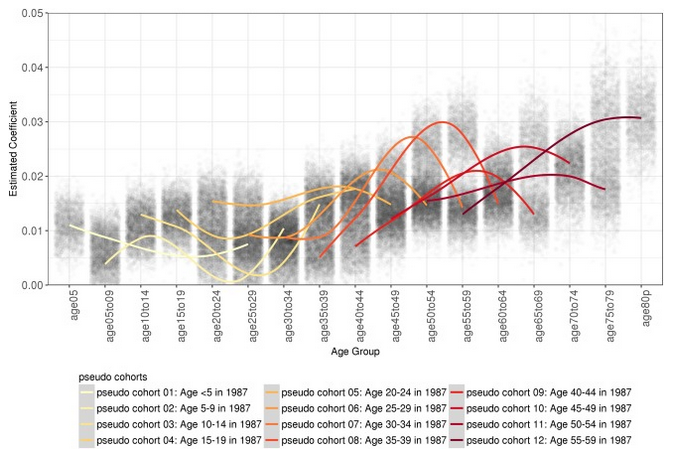Arbeitsbereich
Bevölkerungsdynamik und Nachhaltiges Wohlbefinden
Auf einen Blick
Projekte
Publikationen
Team
Projekt
Demographic Change, Energy Demand, and Greenhouse Gas Emissions
Geleitet von Emilio Zagheni; Risto Conte Keivabu; in Zusammenarbeit mit Hossein Estiri (Harvard University, Cambridge, Vereinigte Staaten)
Ausführliche Beschreibung
Demographic change, energy demand, and greenhouse gas emissions are among the most important and interconnected drivers of ongoing climate and societal changes. Energy demand has been rising consistently despite technological advances that improve energy efficiency. Much of this increase is due to social and economic dynamics. For example, energy demand is soaring because the world population is aging, average income is rising, and because homes are getting larger. Add to this that our global climate is changing, thus creating additional burdens on energy supply and further increasing the demand for energy.
An aging and wealthier world population has been considered a potentially important driver of the increase in CO2 emissions. For instance, energy demand at the residential level is driving a large proportion of the overall CO2 emissions, and age and income are likely to stratify patterns of energy consumption due to a number of economic and housing-related factors. It is not clear, however, how these factors precisely contribute to differences in patterns of energy demand by age, income, and across cohorts. Gaining a deeper understanding of the roles that age and income play as micro drivers of energy demand would thus create opportunities to understand better the relationship between climate change, energy demand, economic growth, and population dynamics. In addition, new insights would inform the implementation of climate mitigation policies that aim to reach the targets set by the Paris Agreement.
An aim of this project is to develop statistical methods for estimating profiles of energy demand by age for individuals, using household-level survey data. We also identify the direct link between age, income, and energy demand. To this end, we account for the potential impact on energy demand of confounding variables, such as sociodemographic factors, housing characteristics, cultural determinants, local, regional, and national institutional settings, and local and regional climatic conditions. Further, the availability of projected future temperature data enables us to consider how population aging, coupled with climate change, alters energy demand. Our overarching goal is to leverage solid statistical methods and a wide range of emerging data from the climate and social spheres in order to develop a fresh perspective at the intersection of population and climate change sciences, a perspective that accounts for demographic dynamics and global warming.
Energieverbrauch von Privathaushalten in den USA nach Alter

Schätzungen der Muster des Energieverbrauchs in Privathaushalten nach Alter in den USA. Die Profile für Pseudo-Kohorten (Personen, die im gleichen Zeitraum geboren wurden und im Laufe der Zeit mit Querschnittsdaten verfolgt wurden) werden durch die Anpassung geglätteter Regressionslinien erstellt. © Estiri, H.; Zagheni, E.: Age matters: ageing and household energy demand in the United States Energy Research and Social Science 55, 62–70. (2019)
Demografischer Wandel, interne Migration, Wohnsituation, Urbanisierung, Lebensverlauf, Statistik und Mathematik
Publikationen
Cimentada, J.; Klüsener, S.; Riffe, T.:
Demographic Research 42:6, 149–164. (2020)

Estiri, H.; Zagheni, E.:
Energy Research and Social Science 55, 62–70. (2019)
